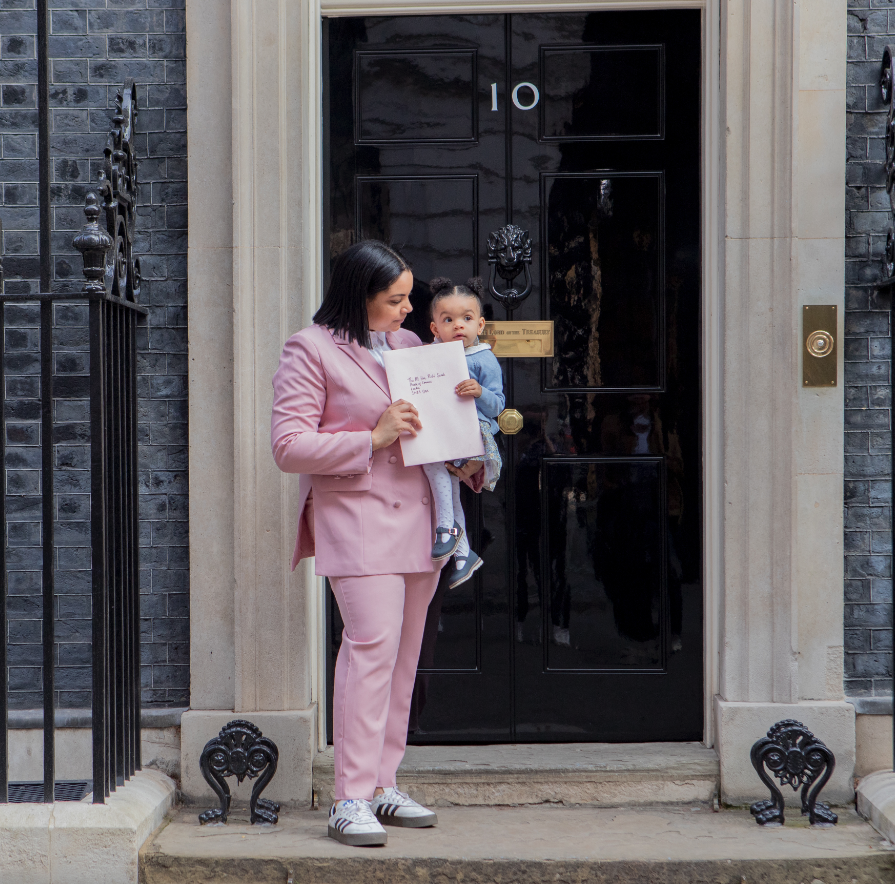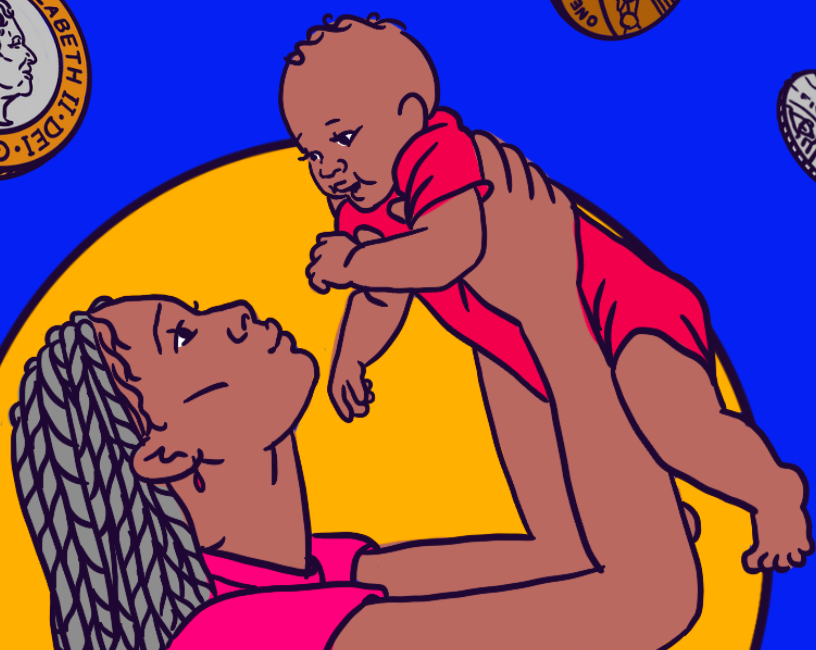Pregnant Then Screwed and The Fawcett Society Parliamentary Briefing:
The case for an independent review of our childcare sector: Westminster Hall Debate (13 September 2021) and key lessons for “building back better” for children and mothers in the UK
This briefing seeks to inform and equip MPs with evidence-based, tangible actions to improve support for children and mothers in the UK. The Westminster Hall Debate on 13 September on “an independent review of our childcare system – its cost and affordability” is a critical moment to ensure the UK Government addresses fundamental issues within the childcare sector and “builds back better.” This is an important issue for the UK with the debate following a successful petition with more than 112,000 signatures.
- Background
Throughout the pandemic, Pregnant then Screwed and the Fawcett Society have been campaigning for investment in the childcare sector to prevent it from collapse. Since March 2020, Pregnant Then Screwed has supported thousands of women who were left to shoulder childcare burdens. We have surveyed more than 110,000 pregnant women and mothers and given free legal advice to more than 8,000 women through our helpline, which has seen a 442% increase in calls over the course of the pandemic. Additionally, we have run regular advice clinics online which have supported over 80,000 pregnant women and new mothers.
The pandemic has created some new issues for pregnant women and mothers in the UK but we need to be clear that the majority of issues are exacerbated, pre-existing issues. The crisis in the UK’s childcare sector, women shouldering unpaid care work and workplace discrimination, are all long-standing, structural issues that need to be addressed.
The Government’s: ‘Building back better and levelling up’ focus must include treating childcare as social infrastructure. The pandemic has highlighted how fundamental childcare is for the UK – it is critical for our economy by supporting parents (particularly mothers) to work, provides jobs and helps to close the opportunity gap for children from disadvantaged backgrounds from an early age.
Research by the Sutton Trust and the Institute of Fiscal Studies recently found that the poorest children are effectively ‘locked out’ of state funded early education opportunities at ages three and four, simply because their parents don’t earn enough. 70% of those eligible for the full 30 hours of funded early education are in the top half of earners, while just 13% of eligible families are in the bottom third of the income distribution. Evidence suggests that the 30 hours of funded childcare policy has contributed to a widening of the gap between the poorest children and their peers before school starts (something that’s likely been exacerbated by the pandemic).
Prior to the pandemic, the childcare sector was in crisis:
- For providers, 11% of childcare providers were running at a significant loss [2] with the industry suffering an estimated £662m shortfall in funding.[3]
- For childcare employees, the Social Mobility Commission found that 13% of childcare workers earn less than £5 per hour while only 17% receive on the job training. Almost 40% leave their jobs within the first two years due to low wages and lack of training.[4]
- For parents/guardians, fees rose three times faster than wages since 2008, with data from the OECD showing that the UK has the second highest cost of childcare in the world. Research by PTS found that 61.7% of women who return to work either work fewer hours, have changed jobs or stopped working due to childcare costs (8% do not work due to the cost of childcare).[5]
The crisis is now worse, with the sector facing significant projected financial losses and the inevitable increases in fees making it even more inaccessible for families. As a result of the first lockdown, demand for places slumped and between a quarter to a fifth of settings were operating with a significant deficit (according to the Institute of fiscal studies). Childcare providers were able to ride the financial storm with Government assistance, notably funding childcare places on pre-pandemic occupancy levels until January 2021.
Though an extra £44 million has been committed to nurseries and childcare through the Spending Review, this increase falls far short of the necessary support for the sector to cope with external factors, including rises to the national minimum wage.
The UK simply cannot afford for this to happen – an affordable and high-quality early years system is fundamental to the UK’s economy functioning. Women are continuing to shoulder the care burden and facing workplace discrimination and vulnerability, further excluding them from being able to participate in the economy freely and fairly. In Pregnant Then Screwed’s landmark survey in July 2020, 15% of mothers said they either had been made redundant or expected to be made redundant in the next 6 months. Of those, 46% blamed a lack of childcare during lockdown as the reason for their selection for redundancy. 72% of mothers had to work fewer hours due to lack of childcare during the pandemic. This is supported by the IFS who found that mothers are 1.5 times more likely to lose their jobs than fathers [6].
The same survey of 20,000 pregnant women and mothers also found that:
- 67% of key workers worked less hours during the pandemic due to lack of childcare.[7]
- 81% say they need childcare to be able to work
- 65% of mothers who were furloughed said that a lack of childcare was the reason
- 51% of mothers did not have the necessary childcare to be able to work
At the same, childcare providers are forced to raise fees to stay afloat, making it unaffordable and seemingly reducing demand. We need to work together to ensure that quality childcare is affordable and recognise it as critical social infrastructure.
o In PTS October/November 2020 survey, 15% of working mothers reported not having the childcare they needed to work.[1] Of these, 21% reported being unable to afford childcare and 20% reported being unable to find a place.
o In our March survey (before the pandemic) 40% of mothers said that their wage either did not cover childcare or it covered childcare and nothing else.
The Fawcett Society polled a representative group of parents across the UK to understand how the pandemic hit them and they found that prior to the January lockdown, parents on low incomes (household annual income under £20,000) were nine times more likely to report the risk of losing their jobs if nurseries/schools/childminders closed or their child was sent home for self-isolation, compared to more advantaged parents (household annual income over £40,000)
That is why we are calling upon the Government to commission an independent review of the childcare sector by April 2022 to ensure the funding provided is enough to sustain a good quality, affordable system.
- An Independent review of our childcare sector.
Pregnant then Screwed and The Fawcett Society recommend that a review focuses on seven key issues:
1) Is the current funding model working?
A freedom of information request by The Early Years Alliance revealed that the funding rates paid to childcare providers for the so-called ‘free childcare’ places are just two-thirds of what the Government itself estimated would be required to fully fund the scheme.
In 2015, OECD data showed that only 0.1 per cent of UK GDP was spent on childcare; the average across the OECD countries was more than double this. [8]
2) Are we heading for a crisis in availability?
Data has shown that in the first 3 months of 2021 England lost 2,087 of its childcare settings. In the last year, nursery closures increased by 35% compared to the previous year and the highest number of closures were in the most deprived communities. In the last 12 months Ofsted data shows a net loss of 442 nurseries from the childcare register. Research by NDNA.
3) Is our childcare system affordable for parent employees?
We know childcare is the biggest enabler of maternal employment – it took 19 years to increase mothers’ participation in the labour market by just 9%. However,
research by Save the Children in 2018 found that there were 870,000 stay at home mums who wanted to work but couldn’t due to childcare cost and availability. At the time, that was half of all out of work mums. Pregnant Then Screwed research in 2019 found that two-thirds of mothers say they work fewer hours due to childcare costs. The female full time employment rate is significantly (12%) below the OECD average. Meanwhile, Price Waterhouse Cooper estimates a boost to the UK economy of £48 billion if we can increase the number of women in work in the UK across all regions.
5) Could further investment in the childcare sector improve outcomes for children? Data compiled by the Rauch Foundation found that 85% of the brain develops by the time a child is five years old. Childcare offers us a magnificent opportunity to give each child a more equal start in life, no matter what their background.
A report by Ceeda in 2019 stated that ‘Progress in narrowing the gap between the average performance of all children and the 20 percent lowest attaining children has gone into reverse.’ In 2019, the National Day Nurseries Associationfound that 26% of the childcare workforce was made up of unqualified assistants.
6) Could further investment in the early years have a positive impact on our economy over the next 20 years?
In 2019, a report conducted by PwC found that, in Australia, for every dollar spent on pre-school, two dollars will be returned to the economy. A 2013 paper by the Foundation for Child Development that explored a variety of studies on childcare concluded that the return-on-investment ranges from 3:1 to 5:1. Childcare is an investment, not a cost.
7) Staff qualifications, pay and recruitment
The challenges in recruiting childcare workers has been well reported with most nurseries struggling to recruit enough staff to operate safely. This issue has been made worse by the pandemic.
The average wage in the sector is £7.42 per hour and in 2019, almost half (44 per cent) of childcare workers had to claim state benefits and tax credits, and research by Nursery World found that one in ten childcare workers is officially living in poverty. In 2019, the National Day Nurseries Association found that 26% of the childcare workforce was made up of unqualified assistants. Speaking anonymously in the report published by the association, one worker said: ‘We need help. This sector is collapsing.’’
References:
[1] PTS Oct/Nov survey, 15k respondents
[2] https://www.ifs.org.uk/publications/14990
[3]https://www.daynurseries.co.uk/news/article.cfm/id/1610864/Early-years-child-funding-shortfall-affecting-poorest-children-in-the-country
[4]https://www.gov.uk/government/news/stability-of-the-early-years-workforce-in-england-report
[5] Pregnant then Screwed (2020) Research and Insights page https://pregnantthenscrewed.com/research-and-insights/
[6] https://www.ifs.org.uk/publications/14861
[7] https://pregnantthenscrewed.com/childcare-covid-and-career/
[8] Public spending on childcare and early education, wwww.oecd.org



